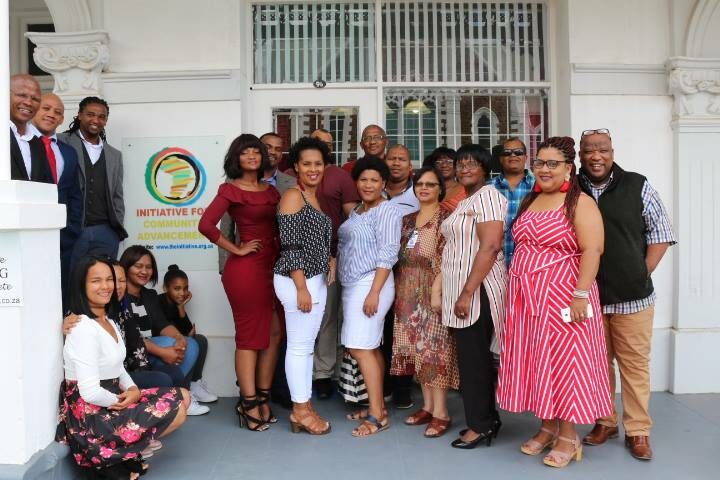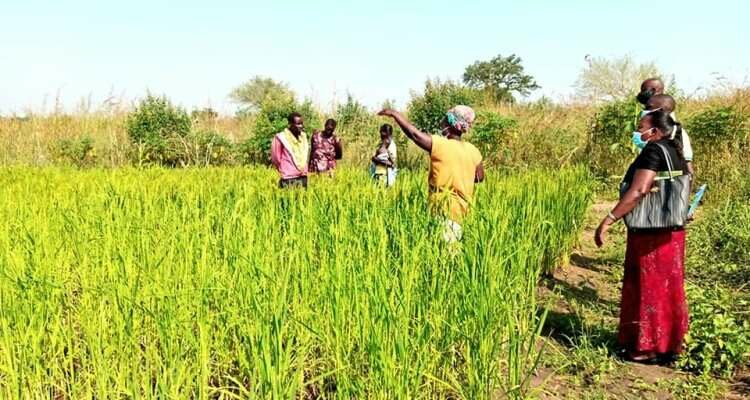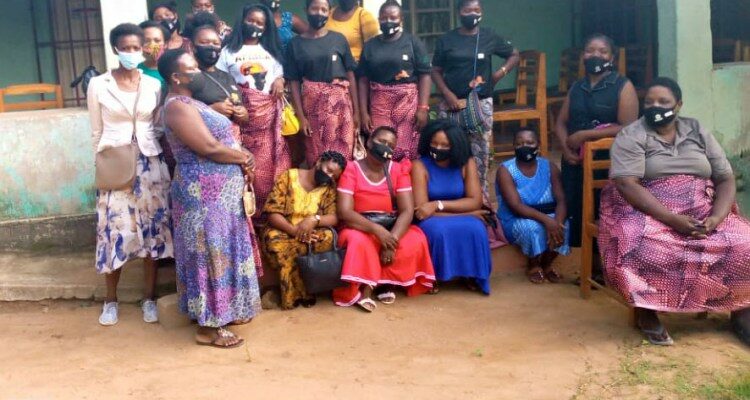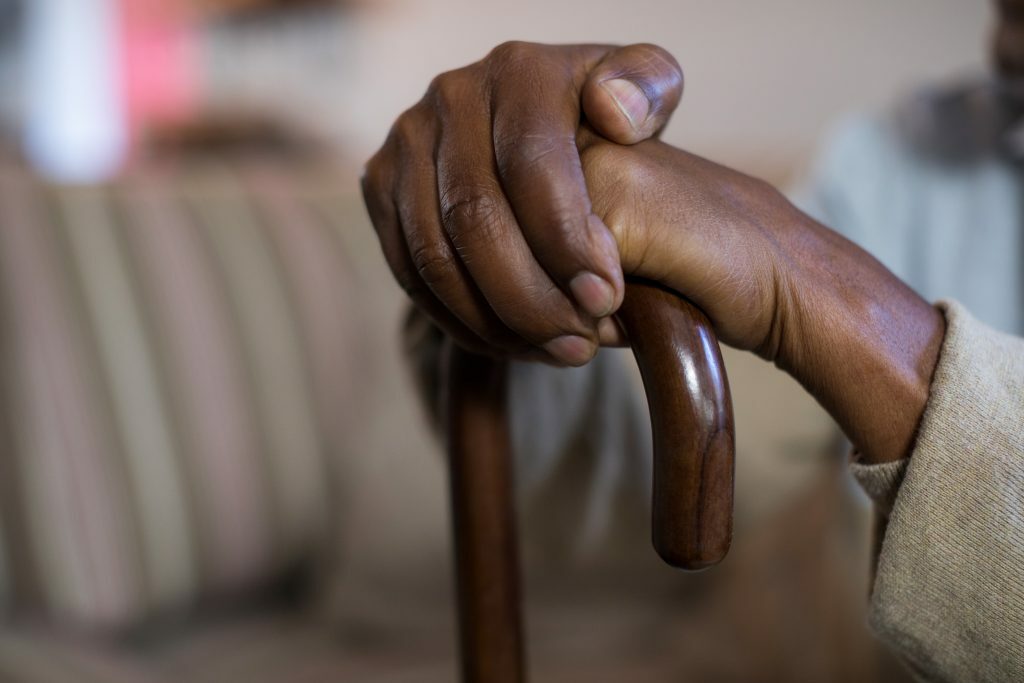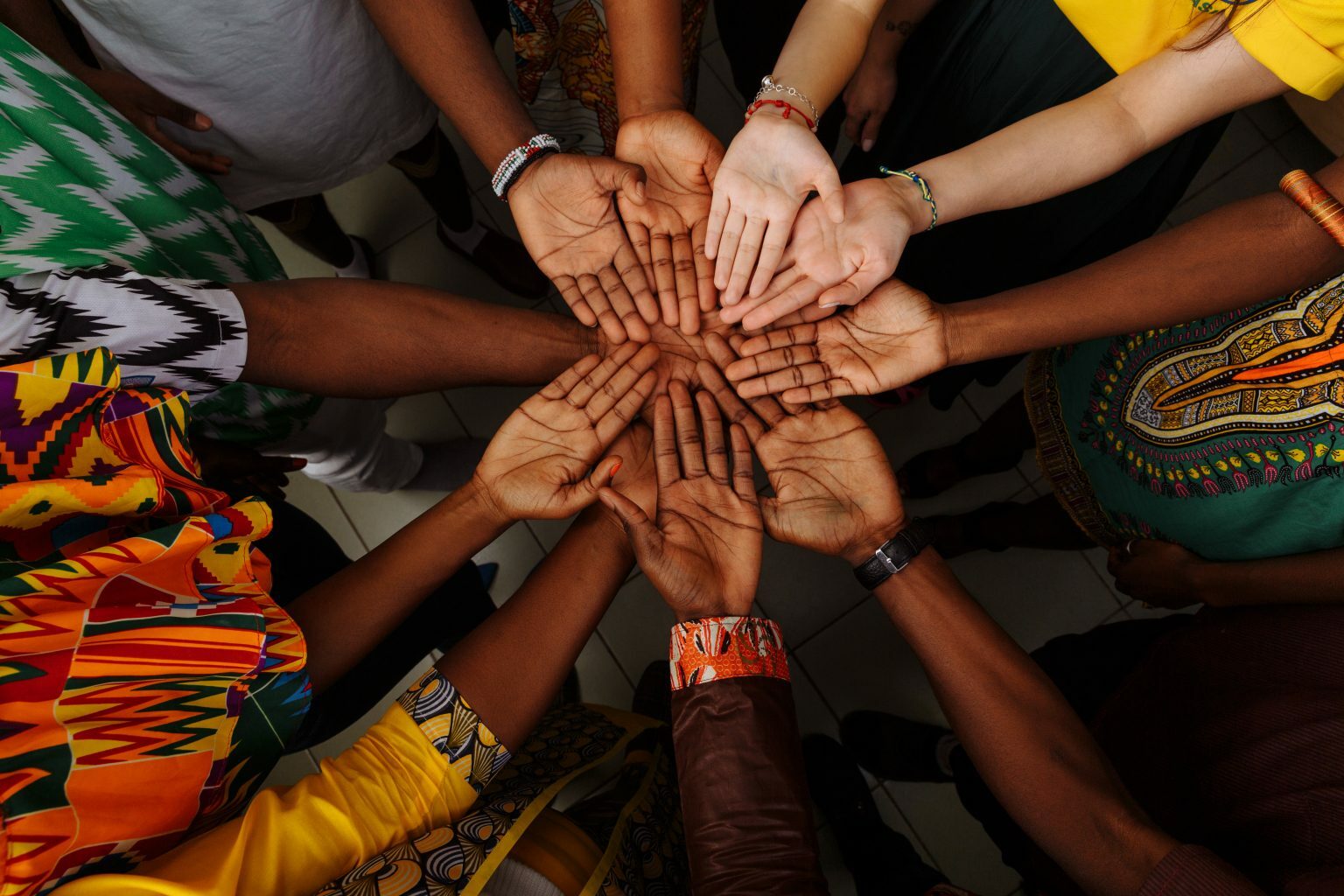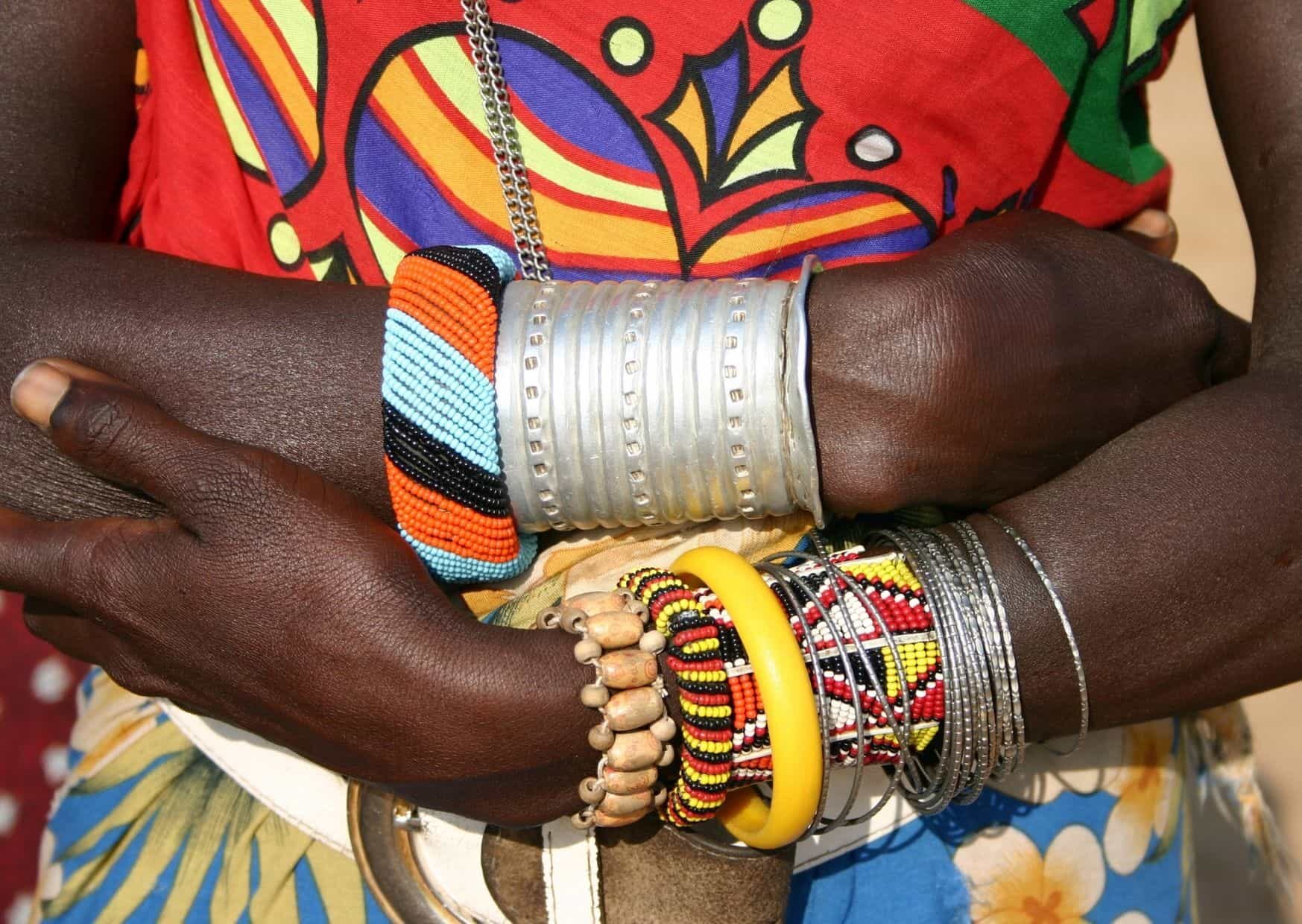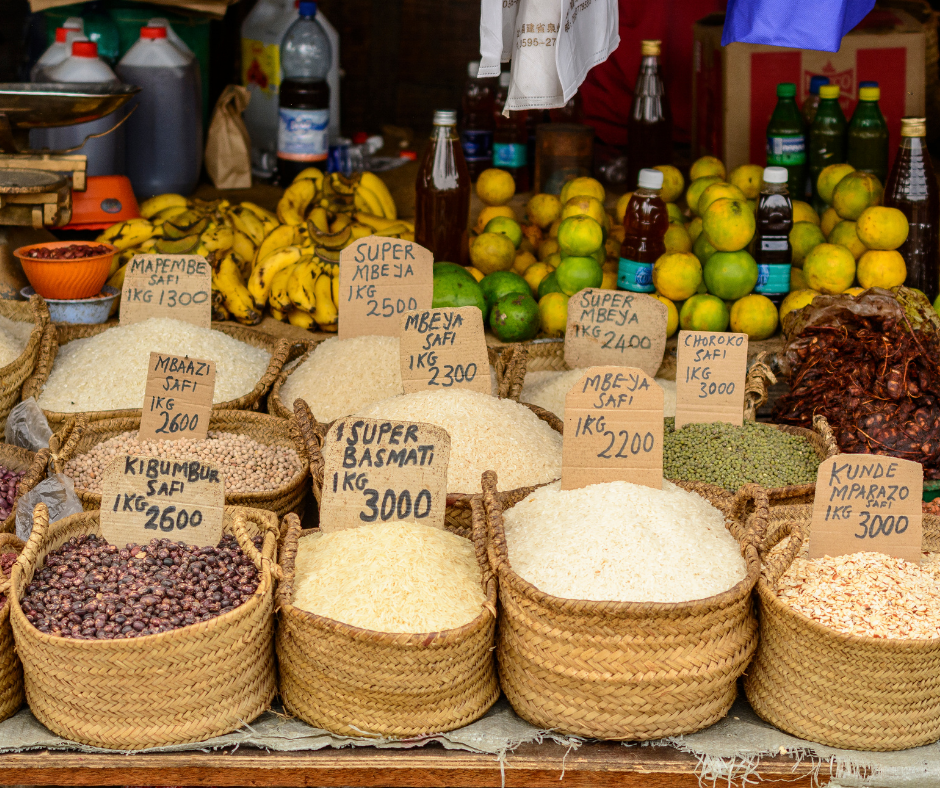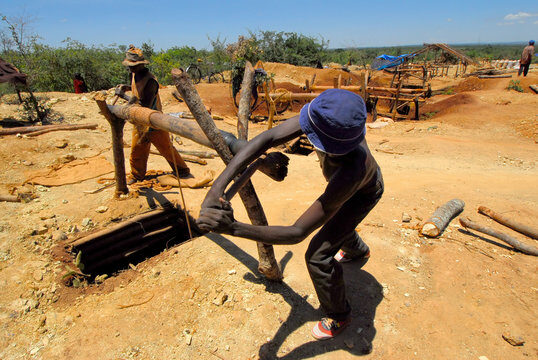Working for the future
Tellus mauris a diam maecenas sed enim ut sem. Viverra accumsan in nisl nisi scelerisque eu ultrices vitae. Pellentesque eu tincidunt tortor aliquam.
Tellus mauris a diam maecenas sed enim ut sem. Viverra accumsan in nisl nisi scelerisque eu ultrices vitae. Pellentesque eu tincidunt tortor aliquam.
When one has had a chance to visit the rural areas or villages, you would without effort notice that farming is the main economic activity for many dwellers. In Malawi alone, though characterized by low levels of input and low output levels, small-scale farmers cultivate about 4.5 million hectares of land. With the capacity to produce and ultimately feed the nation, the effects of the COVID19 pandemic has resulted in the drastic weakening of the food system, the estimated 2 million farming families have been excluded from the agri-economy of Malawi.
With the new reality of the pandemic, the smallholder farmers have faced an exacerbation of pre-existing challenges which range from lack of access to land, limited access to credit facilities to purchase equipment, and having little knowledge about advanced technologies and tools that can assist them adapt to climate change and improve agricultural production. This is why the Southern Africa Trust (the Trust) has designed a series of interventions tailored specifically working with farmers associations to facilitate dialogues that help the efforts of governments in the southern Africa region in uplifting the plight of smallholder farmers. This is one way in which the organisation is fulfilling its mandate of uplifting the living realities of the marginalised and vulnerable people across the 16 SADC countries.
To fulfil its work, the Trust is collaborating with numerous civil society technologies and increase input, something which assures increased returns in terms of harvest.
Through the commissioning of extensive research, the Southern Africa Trust has developed a series of policy briefs which have been published and made available to policy makers across SADC governance structures. One such research was commissioned in 2020 in response to the observed impact of the pandemic, was titled “Accelerating the Goal of Food Security For all in SADC by 2025”. In researching for this policy brief, the study found that land should be considered as a key resource for agricultural production recommending for the implementation of fiscal policies that reduce inequalities in the distribution of assets and incomes, so that the benefits of growth are used for the wellbeing of all communities.
Phiri believes African women smallholder farmers can achieve increased agricultural production with the right investment and policies. The success of the smallholder farmers will eventually result in significant benefits to families, communities and African countries. Writing about women farmers recently, Policy and Programmes Manager for the Trust, Christabel Phiri, called for increased support to farmer’s union and associations. She remarks, “Women farmers who are members of cooperatives or farmers’ unions and associations continue to express satisfaction with some of the benefits of belonging to these platforms. As members of these associations, women farmers have access to farm inputs like certified seed, capacity building skills, marketing information and sometimes ready markets for their produce.”
The long term recovery from the effects of the pandemic in Malawi reply heavily on the production capacity of smallholder farmers. National food security, cross border trade activity, migration employment and stimulus to day to day economy will be much the weaker with a weakened farming sector. The implementation and support of policy recommendations will enable an upswing as Malawians work together to build back better.
In a time where employment opportunities in the semi-skilled sector are limited, informal cross border trade has become the go-to economic activity for thousands of Malawians, particularly women, looking to generate income.
Informal cross border traders travel to countries such as South Africa, Zambia, Zimbabwe and Tanzania and return with various goods including food, clothes, business utensils and stationery amongst many others. These activities have been largely affected over the last year due to travel and trade regulations implement as a result of the pandemic, felt even more greatly by women in the sector.
The Cross Border Traders Association of Malawi (CBTAM) is a civil society organization which works to strengthen, promote and protect Malawian cross border traders by improving the trade conditions as well as protect the rights of informal and formal trade businesses. CBTAM has 2,650 members, 1,650 of whom are women who are very often the sole provider in their homes and communities.
Steve Yohane is a representative from CBTAM who shared an overview of some of the challenges that women informal cross border traders faced both before and during the pandemic, some of which include harassment from the police when women are crossing borders.
He added that sometimes traders clear goods at the border but a few kilometers later they also encounter a roadblock erected by customs officers where there are differences in terms of tax calculations. This results in a financial loss for the women who either feel forced to pay bribes to officials or end up pay higher taxes.“Police officers sometimes request receipts that are produced at the border, which is not their duty as police officers. So women, who are often traveling without much physical protection or confidence on how to exercise their rights, work in fear when going about their business.” he said.
The effects of the COVID-19 pandemic regulations has hit thousands of homes as informal cross border traders cannot travel. And while the option of the internet has been explored, this presents challenges for traders as the items delivered are different from the ones purchased, with little solace offered in returns policies.
According to Yohane, there is also a gap in information sharing among customs officers. He noted that one of the platforms used is COMESA Simplified Trade Regime (STR) – which allows traders to enjoy duty free status when importing goods from countries under COMESA – but some officers do not know which items are under STR.
Christabel Phiri, a Mobilization and Engagement Manager at the Southern Africa Trust says the Covid-19 pandemic has exposed issues which women have been facing for a long time.
“Most women find it easier to do cross border trade because it does not require too many of skills,” said Phiri, “However women often lack information on documentation and procedures required to trade effectively at the border.” She further added that most women traders have lost their capital and do not have access to money to recapitalize their businesses.
In the context of the pandemic, Phiri remarks “When government was putting up packages to help companies, there was no target for informal cross border traders because most of them are not formalized and do not have bank accounts.” This pushes the sector further away from development and exacerbates the effects of poverty within the communities that traders bread winners in.
To empower women in cross border trade, the Southern Africa Trust has been working with Cross Border Traders Association of Malawi to ensure that women have access to information on policies or trade agreements.
To support this work, Southern Africa Trust has conducted extensive research to inform policymakers on challenges women face and how they can be supported. This research is publically available and has brought together stakeholders in addressing the challenges faced in the sector in recent months.
In Malawi, for example, the Trust had engagements with the Ministry of Trade, Malawi Revenue Authority, Immigration and the Police on the implementation of the COMESA STR which was designed to benefit small scale traders. During the engagements, women informal cross border traders were present and able to share the challenges which they face in the hopes that policy makers and law enforcement better understand their plight and accommodate their needs accordingly.
“The Malawi Revenue Authority committed to work with custom officials at the borders to help women cross borders to understand and use the correct documentation,” said Phiri. She added that the cross border association now has close relationship with the government which offers an open door allowing traders to follow up on issues.
Yohane says Malawian cross border traders are in a better position now because of support from Southern Africa Trust.
While progress has been made, more action is needed in order to address challenges women cross border traders face amid and beyond the pandemic. Phiri proposed that government could make a massive difference by implementing a programme which incubates women informal cross borders who have been forced to stop trading as a result of the pandemic to restart their businesses.
She said: “Most of the women cross border traders do not have alternative sources of income, are financially excluded and are unmarried, and the pandemic has really affected them.” Government led intervention will revive economic development and empower traders to put food back onto the tables of the communities plates.
The Southern Africa Trust (SAT) has welcomed the launch of the African Continental Free Trade Agreement (ACFTA), which came into effect on 1 January 2021, expressing the hope that it will significantly benefit women and youth cross-border trade, particularly in southern Africa.
Christabel Phiri, a Mobilization and Engagement Manager at the Trust, said her organisation has been proactive in addressing the plight of women cross-border traders for many years, especially those in the informal economy selling products such as vegetables, fruit, fish, meat and dairy products.
The Trust also focuses on influencing policies to end poverty, and Phiri plays a strong role in ensuring that this vision is realised. She has extensive experience in facilitating dialogue between policymakers and civil society organisations, as well as a rich capability in policy-relevant research management skills.
The staff of the organisation play an instrumental role in bringing the poor, the government and the private sector together to find solutions, oversees the various programmes at The Trust that support responsive policy development. Working across the fields of agriculture, trade and migration, the staff monitor how these programmes affect the lives of the poor.
The Trust, according to Phiri, was established to give agency to people living and affected by poverty through innovative and proactive interventions which challenge for polices in the region to support the improvement of their quality of life.
The Trust works through partnerships formed with civil society organisations, governments and intergovernmental agencies to ensure that development achieved through regional integration and economic growth is driven by the participation of citizens in the SADC region to reduce poverty.
Phiri said the launch of the AFCTA is poised to improve trade relations between African countries, saying enlarged regional markets offer local small and medium enterprises supply and value chain linkages into other markets outside the region.
Phiri added that informal cross-border trading is important not only as a source of employment; it also assists in the eradication of poverty and contributes immensely to food security.
She said women, who are major players in this cross-border trade sector, stand to benefit the most from any measures aimed at promoting cross-border trading.
“The AFCTA offers local entrepreneurs, especially women, many opportunities, including agricultural transformation. Farmers stand to benefit, largely from opportunities to add value to their products and contribute to the regional body chains, and feed into many sectors,” said Phiri.
“Women comprise over 80% of the sector in the SADC region. It is one sector that has been able to turn women into breadwinners, and empowered many women to be financially independent and be able to put food on the table. The sector has a positive gender impact and must be supported.”
The AFCTA is currently the largest trading bloc in the world, comprising 54 African nations.
According to the African Union (AU), AFCTA is larger than the European Union in terms of geographical expansion and the number of member states.
The agreement aims to boost trade by 52% by harmonising a market of more than 1.2-billion people; it will become one of the world’s biggest free trade markets.
The agreement will consolidate the many small, fragmented markets in Africa for investment flows, especially in export-led manufacturing. It will also help the continent meet the targets of numerous Sustainable Development Goals by 2030.
However, African nations have a lot of internal reforms to achieve if the benefits contained in the AFCTA are to be attained. Analysts say corruption, bureaucracy and other bottlenecks to trade have to be dealt with before the AFCTA can be successfully implemented.
African economists and policy analysts have asked several pertinent questions about AFCTA: are African nations really as pan-African as they claim to be? Do they have more than national interest at heart? How will the AFCTA work where other regional blocs have failed?
Augustine Tawanda, General Secretary of the Zimbabwe Cross Border Traders Association, said he hoped AFCTA is able to open up space for fair trade and positively impact on the informal economy operators.
“As small-scale traders we lobbied for the COMESA (Common Market for Eastern and Southern Africa) Simplified Trade Regime (COMESA-STR) as we negotiated for the AFCTA, and we hope it will benefit informal operators, because previously, the tone of the trade agreements always favoured the interests of the multinational companies and big players, leaving small informal traders out in the cold,” said Tawanda.
He said it would also be important to watch how the AFCTA will also deal with challenges posed by the Covid-19 pandemic.
Tawanda said the situation at Beitbridge border post between South Africa and Zimbabwe was unacceptable and put the lives of many people, including traders, at risk.
He said cross-border trade on foot was halted and large consignments were stuck at the border post, while drivers complained of long queues due to the mandatory coronavirus testing at Beitbridge border post.
“We witnessed the chaos and stories at Beitbridge border post. It was definitely a pathetic situation. Obviously systems were overrun and actually exposed a lot of people to the dangers of Covid-19, including informal traders. We hope the AFCTA will address these issues.”
Tawanda said the closure of borders affected thousands of Zimbabwean cross-border traders, who had to deal with South Africa’s Border Management Authority Act 2 of 2020.
Phiri said The Trust is deeply concerned about how many informal cross-border traders and farmers in southern Africa are affected by the Covid-19 pandemic.
The pandemic, she added, has created many challenges for many countries in southern Africa, including South Africa. Land port closures affect trade across physical borders, much of which is small-scale and informal, and which requires the movement of people.
“There are no employment opportunities and many poor and vulnerable people’s lives are in jeopardy,” said Phiri.
“There has been limited movement across borders due to Covid-19 pandemic affecting cross-border trade and livelihoods. We are currently engaging with the Southern African Development Community (SADC) and the AU on how to intervene and harmonise cross-border trade.”
She said the Covid-19 pandemic has meant loss of income for cross-border traders, adding that it has also brought to light “the weak healthcare systems we have in Africa”.
“Many traders run informal businesses and their businesses are not registered. When countries offered relief packages to businesses and other sectors, cross-border traders lost out and did not receive any financial support because many are not formalised,” said Phiri.
She said while AFCTA was welcomed, the challenge for organisations such as The Trust at the moment is how to assist informal cross-borders traders during the pandemic to recapitalise their businesses, as many are unable to access formal financing.
Many traders, particularly those in Lesotho, Mozambique, South Africa, Zimbabwe and Botswana, are unbanked and rely on expensive informal loan sharks for bulk stock purchases.
“It’s very difficult to approach banks as they demand security and a clean profile. That’s been the biggest challenge facing traders during the pandemic. Many informal traders are now in debt and are not able to repay loan sharks, and face major risks,” said Phiri.
“There are so many challenges at the borders. Access to information is one of them. Most of the traders do not have the relevant documents. We also need better border management systems, including infrastructure and improvement of roads.”
Phiri said one of the urgent priorities of The Trust with regards to AFCTA was to ensure that traders have access to information in English and various national local languages.
She said translation of information is also crucial, arguing that the risk of not translating information is that it perpetuates marginalisation through language and disempowers cross border traders from being able to trade to the best of their ability within their markets. Diversity of language is an enabler of progress for the work to end poverty, said Phiri.
“We also need better communication strategies around the Covid-19 pandemic, using platforms such as WhatsApp and other social media apps. Community radio stations can also play a role and be used to inform citizens about AFCTA and its benefits,” said Phiri.
For more details, visit https://www.southernafricatrust.org/
Society Talks is a public dialogue hosted by the southern Africa Trust through a live stream on YouTube. The dialogue brings together stakeholders within the development and business community, civil society and the public to inform, engage and share experiences with the broader society.
In the 21st instalment, the panelists discussed the experiences and lessons learnt from the pandemic, that civil society leaders across the region can use to strengthen their personal and professional capabilities, for the communities that they serve. The panelists included Janet Zhou, executive director of ZIMCCOD, Shireen Motara, social Entrepreneur, Board Member, Executive Coach and Mentor, facilitated by Masego Madzwamuse, CEO of Southern Africa Trust.
Janet summarised a recent article she wrote, highlighting the deficiencies in the leadership of the government sector during the pandemic. She spoke of lessons she learnt through the process, starting with her preparations for ‘Doomsday’ – the lockdowns and restrictions imposed as a means to curb the spread of the virus. Seeing the traditional role of civil society as becoming almost redundant, Janet said without preparation, they would have been caught flat-footed, unable to hold the solution makers accountable. She noted that civil society should have been classified as essential work during the pandemic, so they could defend livelihoods, human rights and dignity.
The next lesson was termed ‘heavy lifting’ – keeping the communication channels between the various stakeholders open, as the activities of civil society were immobilised. This included allaying the fears of the team and the stakeholders, with regards to the continuity of their work, as well as safeguards against being exposed to the virus. Janet moved on to agility – the need to adapt to new ways of working, using digital platforms.
Shireen entered into the conversation with her observations of organizations adapting their working structures internally, embracing technology to facilitate remote working. She reflected how this ‘forced ’experiment has resulted in many of these organisations relooking at how they work, and whether or not they actually need offices anymore. She also mentioned some of the changes externally – particularly the increased engagement with donors. Shireen noted how the burden of helping communities with food, medical supplies etc. fell to civil society, rather than government; and how the communities, with extremely limited access to digital technology, really suffered.
Janet continued with her reflections on agility, and how a need arose for CSOs to equip and train the communities to use digital technology, specifically on the platforms that needed to be used. She spoke of the difficulties in coordinating the teams, but how it was facilitated by having the ‘Doomsday’ plan in place. She touched on the need for entrepreneurial leadership in the NGO and CSO space, “never waste a crisis, there are always opportunities”.
Shireen supported Janet’s comments on the need for more entrepreneurial leadership in civil society, saying that there is need for adaptability, seeing new ways of doing things. Reviewing her thoughts on what she observed, interacting as a member on Boards which she sits, Shireen said that the leaders that were open and accepting of the fact that they had to collaborate and rely on their teams were more successful at dealing with the pandemic. She said this prompted new skills to emerge. Another noteworthy action was the strategy planning, for various proposed scenarios – this kind of thinking and planning, she said, enabled forward movement.
The sharp increase in Coronavirus infections within the Southern Africa region is cause for great concern and calls for immediate remedial action. In less than a week, the number of infections has increased five times over and infiltrated into all but four of the 16 SADC member nations. For the vulnerable and those living in poverty in the region, this results in increased pressure on our medical and disaster recovery resources, therefore compromising the various economies that sustain all people living and working in the region.
Our primary concern is more specifically for women, small businesses, informal and cross-border traders, small scale farmers, migrant workers and refugees, domestic workers, and ex-mine workers in the region. Many of these individuals are the primary caregivers and economic providers for their families and yet are highly vulnerable to exposure to the virus, this over and above their existing exposure risks. The civil society organizations that work specifically with these groups of individuals require increased access to flexible solutions in order to facilitate their relief in these challenging times.
The continued spread of Coronavirus across the Southern Africa region presents unimaginable challenges that our benefactors and the people of the region will not survive, unless drastic short- and long-term measures are implemented immediately.
While many nations have implemented precautionary mechanisms to limit the spread of Coronavirus, we are deeply concerned with the light manner in which they are taken by national residents. Ours is a region with many migrant workers who regularly cross borders in various capacities; as such, any non-compliance with precautionary declarations will have a direct impact on the greater region and thus increase the spread and rate of infection of the virus. We stand in solidarity with the vulnerable populations of our region and therefore make calls and statements for action:
To our partners, we will remain fully accessible to each of you. It is in times like this that our level of communication and engagement should deepen, albeit through use of modern technology mechanisms. In addition to having access with our team members, we’d like to invite you to collaborate with us in developing a body of knowledge that collates ours and the experiences of the vulnerable who we serve. Please expect a follow-on letter in the coming days where we will share details of this invitation, how each of us can participate and the intended outcomes arising from this.
It will be through our ability to collaborate particularly in this time that an impactful difference can be made as we navigate through the pandemic. We ask that you remain vigilant and committed to your beneficiaries in what is a tough time for all.
To our donors, we remain committed to our mandate and will work innovatively during this time to make the impact that you have entrusted us with. We ask for your continued support in enabling our mandate to the people of our region.
To the people of the SADC region and across the globe, we ask that each of us remain resilient and steadfast in overcoming Coronavirus. It is every person’s responsibility to comply with state declarations and extend these where needed, in order to contain the rapid spread.
We firmly believe that in the same way the region has overcome past pandemics and injustices, we will overcome Coronavirus. The future of the region is in our hands.
From the Board and Executive Management of Southern Africa Trust
Tellus mauris a diam maecenas sed enim ut sem. Viverra accumsan in nisl nisi scelerisque eu ultrices vitae. Pellentesque eu tincidunt tortor aliquam.
In the 17th instalment, the conversation reflected some of the lessons learned during the pandemic, and the recommendations from partners of the Trust. The panelists included Christabel Phiri (Programme Manager), Marlon Zakeyo (Executive Manager for Programmes) and Masego Madzwamuse (CEO), of Southern Africa Trust.
Looking at the status quo at present, compared to that in May, Marlon began with his view that young people hold the key to the future. Mentioning earlier sessions of Society Talks, he recalled that while older people were fixated on how they were going to cope with a virus about which so little was known, the youth spoke more positively about how to create a bigger and better future on the back of it. He also mentioned his admiration for the partner organizations’ resilience and adaptability to the ‘new normal’.
Christabel spoke of the vulnerability of civil society, in terms of both financial sustainability and the accessibility of resources. She said civil society organizations and non-state actors need to move from developing funding proposals to a more active role of resource generation and establishing social enterprise. Mentioning women cross border trade, she said social insurance and protection is needed more than ever. In response to organizations being unable to implement their programmes or interact with their constituencies, having to use alternative methods of communication, has highlighted the lack of technology. Also, on that note, she emphasized how important it is right now, to strengthen advocacy and ensure that governments are held accountable to implement their programmes and policies, with no further delays.
Marlon explained Regional Apex Organizations of Civil Society: umbrella associations representing different NGO organizations and social movements, these include the SADC Council of NGOs, Economic Justice Network, and Christian Councils of Southern Africa, with a sister platform representing the social movements and informal organizations.
In terms of the issues, Marlon began with the economic devastation that has been experienced by communities, and also the definition of ‘front-line workers’ – in addition to the healthcare workers, the civil society organizations who have been working with the vulnerable, must be included in this grouping. Without these CSO workers, issues like gender-based violence would not have been brought to light.
Christabel expanded on this, mentioning a movement to expand technology and communication amongst the cross-border trade associations, so that trade can be facilitated once again. Looking at access to resources and funding, there has been an effort to update membership details so that when borders reopen, trade is not delayed. In addition, opportunities for activities to generate an income while cross border trade is still prohibited, have emerged, like the making of masks.
With regards to miners and migrant workers, particularly those with occupational diseases, communication was vital to ensure access to healthcare. CSOs have had to engage with government on behalf of these extremely vulnerable constituencies, finding ways to work around pandemic restrictions at times.
There has been collaboration between the private sector and various organizations, to bring aid to those most in need. An example was mining communities, who’s most pressing need was food.
Marlon reflected on how so many interactions, even weddings and funerals, have become digital, and how there is a risk of exclusion for members of communities who do not have access. He also spoke of the collaboration between groups – in times of a pandemic, no organization can work alone, if success is to be achieved.
Looking at social protection, and the deficit in funding, most the funding at present comes from donors, which is obviously limited. Governments need to be engaged, to see how much they can allocate to social protection systems, to ensure a basic level of income protection for most of their citizens.
Christabel spoke of the unique opportunity that has been provided through the pandemic, showing us what the challenges are, where the most important issues lie. Programmes can be finetuned to address the needs of specific groups, like smallholder farmers and women cross border traders.
Marlon expounded on the Basic Income Grant, and how this needs to be developed – using the experiences of people during this pandemic, to prepare for the next one, or the next natural disaster. He said there needs to be an understanding that social protection is not a privilege, or a handout, it’s a basic right.
Summing up the three biggest issues, Masego listed social protection, ending hunger and food insecurity, and rethinking of the economic system.
In response to Masego’s question of what the ideal future in Southern Africa would look like to them, the panelists replied:
In the 16th instalment, the conversation focused on the increased pressure on food security in Southern Africa, exacerbated by the Coronavirus pandemic, especially for smallholder farmers, rural and vulnerable groups. The panellists included by Lusanda Ncoliwe, partner at PricewaterhouseCoopers, Tulo Makwati, co-ordinator of the SADC Business Council, Zachy Mbenna, executive director of the Tanzania Private Sector Foundation, facilitated by Ian Mashingaidze, of behalf of the Mandela Institute for Development Studies (MINDS).
Lusanda opened the dialogue with her view on the interconnectivity between private business and the farmers – and how this link between the food source and the private sector is really important. Discussing the advantages of the Free Trade Agreement, Lusanda touched on the possibility of being able to trade freely within SADC and the rest of Africa, closing the food security gap.
Speaking of the impact of COVID-19, she said that during the lockdown, smallholder farmers were excluded from the value chain, yet retailers remained open and trading. This had an effect on the people who were not able to access these retailers or afford the inflated food prices. One of the main problems is legislation, and the lack thereof that does not allow free trade between countries in Africa. Lusanda believes that the problem is not that there is insufficient food to feed Africa, but that legislation and red tape is hindering the ability to direct food to where it is needed.
Tulo gave a bit of background on the purpose of the SADC Business Council – chiefly the inclusion and consultation of private sector in policy processes. Another key area is the promoting of regional values chains, primarily in the areas of mining, agriculture, and pharmaceuticals, through workshops. He said the biggest problem that emerges from these sessions, is the need to domesticate the regional policies. Tulo also mentioned the need to popularise the Africa Continental Free Trade Agreement, focusing on how small countries will benefit.
Zachy joined in with his statement of how pandemics don’t recognise boundaries, borders and rules, and how we have learnt a valuable lesson about the importance of not looking inward, not reducing efforts to national borders or member states, but to have a bigger picture of regions in mind. He spoke about the potential for growth, if member states use competitive advantage – focusing on the abilities and resources available to grow as a region, rather than as individual countries.
He gave an example of how linking sectors can be advantageous: agri-business, when linked to industrialisation, to manufacturing, to food processing and trade, can more easily achieve its goals. He also spoke of the regional policies and protocols, and the need for continuous support of these, as well as their alignment with the greater goals. Looking at an example of inter connectivity, Zachy spoke of the Southern Agricultural Highland Growth Corridor of Tanzania (SAGCOT), and its exceptional commercial success.
In response to a question of how the private sector is using digital transformation to develop the region, Lusanda said the COVID-19 pandemic has actually accelerated the use of technology. She said that while these can be used in all areas, it forced the private sector to find new ways of doing business – giving an example of a project she completed using technology, where before they would have physically visited 4 or 5 countries in the duration of the project. Finding new ways to collaborate and blend skills has been one of the silver linings of the pandemic.
Speaking on how the private sector has supported the smallholder farmers during the pandemic, Zachy mentioned how the policy regarding small and medium enterprises in Tanzania has been reviewed, to include them in the economy, through linkages. Also, financing has been discussed, as well as training in agriculture.
Tulo added to this with his comments on the SADC Pharmaceuticals Working Group, and how they want to promote and harmonise the registration policy in the region, as well as conduct research and development, which is currently very low. He also spoke of the working group they have established for the cross-border trade – a regional initiative to determine the needs and issues of this group, to increase accessibility of trade.
Lusanda, in response to a question about more access to technology, she said mobile phones must be used as the starting point for communications with the people on the ground. She also spoke of the technological advances in farming, and how government needs to implement use of drones.
In conclusion, the panellists summed up their key points:
Lusanda: the interconnectedness of the value chain, from source to consumer; co-operation between African countries to ensure food security; the importance of the FTA.
Zachy: private sector should make purposeful efforts to invest in people, to take advantage of resources; make the strategies and policies of SADC more relevant to the people at grassroots levels; willingness to make trade and economic activities possible within the region.
Tulo: the need to identify the most pressing trade barriers; domesticate regional policies.
Click there to watch the full airing.
In the 16th installment, the conversation focused on the challenges of migrant mine workers during the pandemic, specifically their inability to claim owed social security benefits, and their existing comorbidities that expose them to higher risk of contracting COVID-19. The panelists included Naledi Monnakgosi, board secretary of the Botswana Labour Migrants Association, Vama Jele, co-ordinator of Southern Africa Mineworkers Association (SAMA), Kerrin Odendaal, Health Focus SA, Kitso Phiri, Independent Consultant in the field of Human Rights in the mining sector, facilitated by Christabel Phiri, of Southern Africa Trust.
Christabel gave a brief background of the various compensation and relief funds in South Africa, available to migrant mine workers who have contracted diseases or occupational injuries. Unclaimed benefits amount to approximately ZAR ten billion.
Kitso outlined the challenges posed to ex-miners, one of the major ones being the advent of technology, and the new processes required to access claims electronically. Government has not facilitated the process, in terms of support and infrastructure, thwarting the process.
From the fund side, Kerrin spoke of a project she has been involved in, creating a database of the miners, to facilitate payments from the various funds. Problems arise with missing or incomplete documentation, contact details that are not updated, and tracking and tracing the migrant workers.
From the miner’s perspective, Naledi shared their challenges: lack of money for food, homes, livestock, inability to work further due to age, illness, or injury. This also trickles down to the surviving family members of miners who have passed: children have not received adequate education, mothers cannot find work that supports their needs, widows struggle with grief and inability to earn, as well as receiving no support from their late husband’s families.
Vama explained the process that is in place to assist these stricken groups, from the eight member countries: South Africa, eSwatini, Malawi, Zimbabwe, Botswana, Lesotho, Mozambique, and Namibia. Associations exist in each of these countries to assist in claims, as well as advocating for rights. They also supply medical assistance to those suffering from occupational illnesses, like lung disease. Vama brought in COVID-19 and how the lockdown restrictions have prevented much of the face-to-face work they do. Using technology has been difficult, as it had not been implemented prior to the pandemic. A major stumbling block is that SAMA is not part of the decision-making process, when it comes to the claim and payment process, they can only implement according to the protocols.
Christabel spoke of an urgent need to review the current legislation around compensation and payments, discussing with the funds about what can be done with the unpaid monies. Issues around information and dissemination, a co-ordinated database that can be accessed by multiple funds, tax exemptions and cross-country money transfers are vital to facilitating the processes.
Discussing the landmark Silicosis settlement, Kitso mentioned the establishment of the Trust intended to organize payments, to gold miners employed by one of the six mining companies in the law suit, those exposed to risk work, within the periods of 1965-2019. This too, applies to dependents of late mine workers. Running for 12 years, the Trust hopes to distribute the funds fairly to those who qualify.
Closing thoughts on what is needed now:

